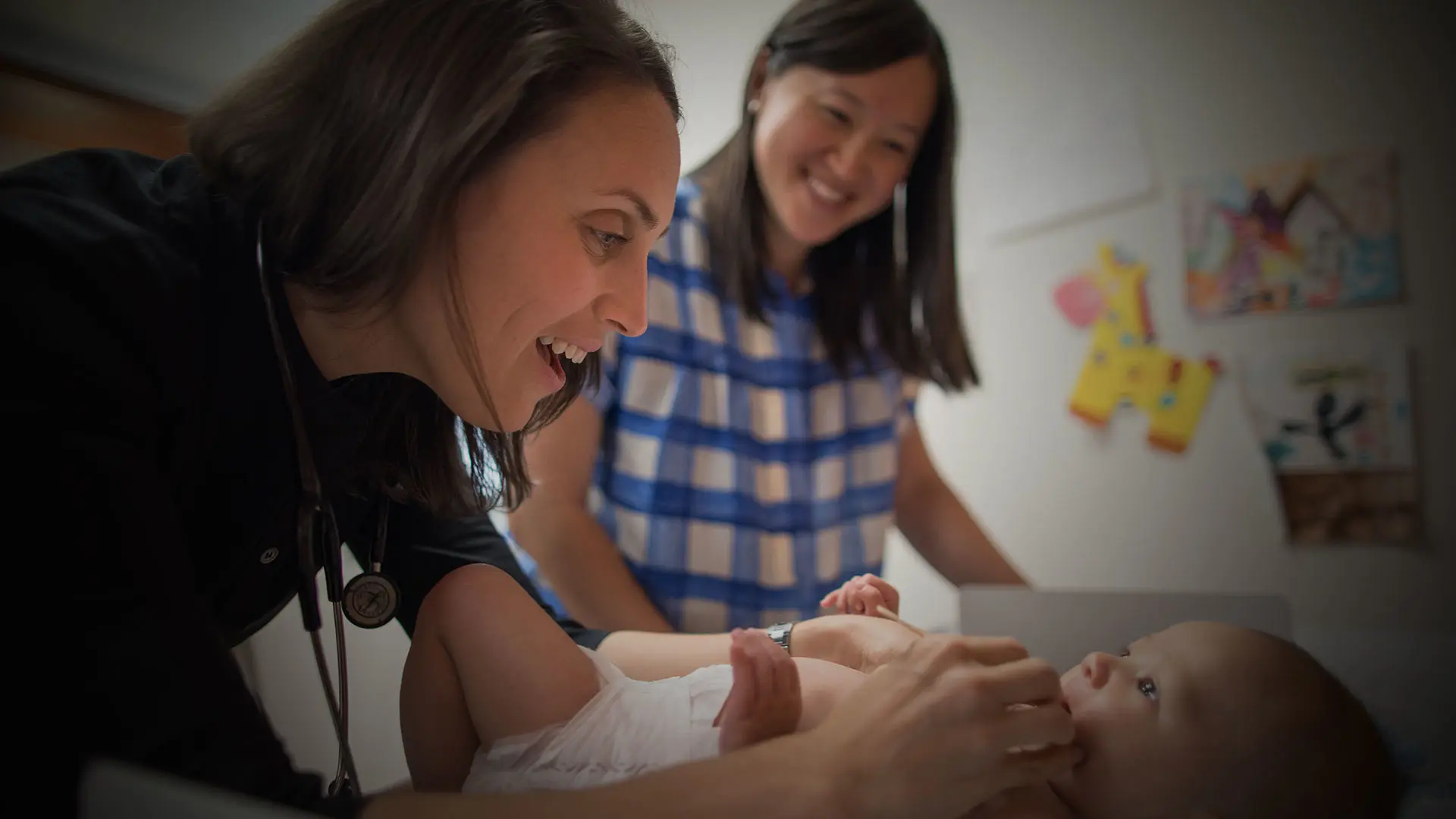When Blair Hammond, MD, joined Mount Sinai in 2003, she was amazed at how often parents looked to her for guidance on issues traditionally considered non-medical, such as parenting challenges and behavioral issues.
As a busy practicing pediatrician, educator, and parent, she struggled to find resources to learn more and to educate parents during packed visits. Her journey to address these challenges began with her colleague, developmental psychologist Aliza Pressman, PhD. Together, they envisioned a partnership where all practitioners had the benefit of a child development expert, and where traditionally siloed fields could come together for the benefit of patients and families. In 2014, with this mission in mind, Dr. Pressman and Dr. Hammond co-founded the Mount Sinai Parenting Center, along with social worker Mariel Benjamin, MSW, and fellow pediatrician Carrie Quinn, MD.
The Mount Sinai Parenting Center shares the science of positive parenting behaviors and early child development with primary care providers across the nation. The center aims to reach every child in this country, regardless of ZIP code, diagnosis, insurance coverage, or socioeconomic status, by equipping practitioners with the practical skills, tools, and resources they need to use everyday health care moments to promote development and strong parent-child interactions. All resources are free of charge and available to anyone.
One of these resources is the Keystones of Development, an online curriculum that demonstrates how providers can discuss, model, and praise behaviors that foster attachment, autonomy, self-regulation, problem-solving skills, perspective-taking, and academic knowledge. First launched in 2018, the curriculum is now used in 188 pediatric residency and 256 family medicine programs across the country and growing daily.
Dr. Hammond’s work at the center has transformed her personal practice. She starts each appointment with a moment to observe the parent-child interaction. Then she comments on what she sees and proactively addresses common parenting concerns.
“Not only do I talk to families about the sing-song voice babies love to hear even before they can talk back, label a child’s emotions throughout the visit, give high fives, and model silliness, but I truly have changed the fundamental way I approach families in my practice,” Dr. Hammond said. “I no longer dread questions about discipline, but rather look at them as opportunities for connection, education, and support.”
The work doesn’t stop there. The last decade has brought new evidence about the importance of safe, stable, nurturing relationships (SSNRs) and their influence on a child’s social, emotional, cognitive, and even physical health. The American Academy of Pediatrics (AAP) now acknowledges supporting SSNRs as central to the provision of primary care, underscoring how the Mount Sinai Parenting Center’s resources are essential for providers everywhere.
Mount Sinai is changing how providers support families, Dr. Hammond says, recognizing relationships and parenting support as preventive care that is essential to overall health and wellness, embodying the AAP statement, and inspiring others to do the same.
